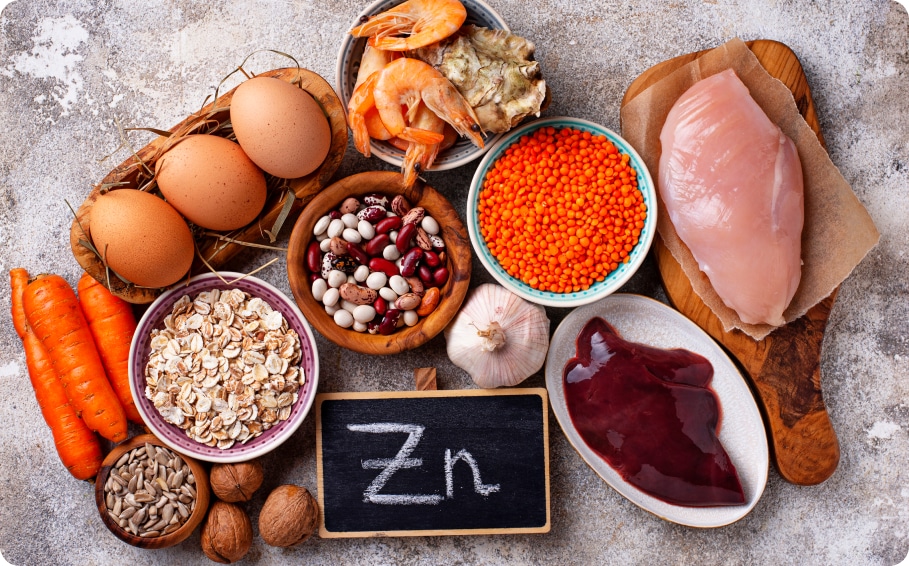Did you know that nearly 1 in 4 men over the age of 30 experience lower-than-normal testosterone levels? And it’s not just men, women too need testosterone to maintain their health and well-being.
And how is that?

What is Testosterone?
Testosterone is much more than just a hormone associated with masculinity. It’s crucial for both men and women, impacting muscle mass, bone density, mood, and energy levels. When testosterone levels drop, the effects can be wide-ranging, from fatigue and decreased libido to mood swings and weak muscles.
In men, testosterone is primarily produced in the testes, while in women, it is produced in smaller amounts by the ovaries and adrenal glands. This hormone is essential for the development of male secondary sexual characteristics such as increased muscle and bone mass, body hair growth, and a deeper voice. In women, testosterone contributes to muscle strength, bone density, and overall energy levels.
The Natural Decline of Testosterone
As individuals age, testosterone levels naturally decline. For men, testosterone levels peak during adolescence and early adulthood, then gradually decrease by about 1% per year after the age of 30. By the time men reach their 50s or 60s, they may experience noticeable symptoms of low testosterone. Women also experience a decline in testosterone, particularly after menopause.
Factors Affecting Testosterone Levels
Besides aging, several factors can contribute to low testosterone levels:
- Stress: Chronic stress increases the production of cortisol, a hormone that can suppress testosterone production.
- Poor Diet: A diet lacking essential nutrients, particularly those needed for hormone production, can lead to low testosterone levels. Diets high in sugar and processed foods can also negatively impact hormone balance.
- Lack of Exercise: Regular physical activity, especially strength training, helps boost testosterone levels. Sedentary lifestyles can contribute to a decline in this crucial hormone.
- Obesity: Excess body fat, particularly around the abdomen, can lower testosterone levels and increase the conversion of testosterone to estrogen.
- Sleep Deprivation: Poor sleep quality and insufficient sleep can significantly reduce testosterone production.
Normal Testosterone Ranges
Before discussing testosterone-increasing supplements and how they work, it’s important to understand the normal ranges of testosterone levels and how they vary with age. For men, normal testosterone levels are typically measured in nanograms per deciliter (ng/dL). According to the American Urological Association:
- Men aged 20-39: 264-916 ng/dL
- Men aged 40-59: 196-859 ng/dL
- Men aged 60 and above: 194-783 ng/dL
Women also have testosterone, though in lower amounts, with normal levels typically ranging from 15-70 ng/dL depending on age and health status.
Top Supplements for Testosterone Increase
Supplements are very important for supporting and enhancing testosterone levels, offering a natural and effective solution for those seeking to optimize their hormonal balance.

Fenugreek
Fenugreek, a versatile herb with a history deeply rooted in traditional medicine, has gained attention for its potential to boost testosterone levels and promote male vitality.
How Fenugreek Works to Boost Testosterone
Fenugreek contains active compounds such as saponins, particularly fenugreek saponins and furostanol glycosides, which are believed to contribute to its testosterone-boosting effects. These compounds work as follows:
- Stimulating Testosterone Production: Research suggests that fenugreek may stimulate the production of luteinizing hormone (LH), a key hormone that signals the testes to produce testosterone. By increasing LH levels, fenugreek supports the natural synthesis of testosterone in the body.
- Inhibiting Enzymes: Fenugreek may inhibit the activity of enzymes involved in the conversion of testosterone to dihydrotestosterone (DHT) and estrogen. By blocking these enzymes, fenugreek helps maintain higher levels of testosterone, which is essential for various aspects of male health.
Fenugreek may also exert antioxidant and anti-inflammatory effects, which can help mitigate oxidative stress and inflammation, factors that contribute to hormonal imbalances and testosterone decline.
Recommended Dosage and Routine
The recommended dosage of fenugreek supplements can vary depending on factors such as the extract strength and the individual’s health status. However, typical dosages range from 500 mg to 1000 mg per day, divided into two or three doses.
For optimal results, it’s advisable to take fenugreek supplements with meals to enhance absorption. Additionally, consistency is key, so it’s recommended to take fenugreek regularly as part of a daily routine.
Explore our range of products containing Fenugreek at Harfang Supplements!
Vitamin D
Effect of Vitamin D on Testosterone Level
Research indicates that vitamin D supplementation can lead to significant increases in testosterone levels, particularly in individuals with low baseline levels.
Vitamin D regulates gene expression in Leydig cells, specialized cells in the testes responsible for testosterone production. By stimulating the production of enzymes involved in testosterone synthesis, vitamin D promotes the conversion of cholesterol into testosterone, thereby increasing testosterone levels in the body.
Preferred Type of Vitamin D for Testosterone Boost
Vitamin D3 (cholecalciferol) is the preferred form for boosting testosterone levels. Compared to vitamin D2 (ergocalciferol), vitamin D3 is more efficient at raising and maintaining blood levels of vitamin D, leading to greater enhancements in testosterone production.
Feeling low on energy? Buy Vitamin D3 Chewables from Harfang Supplements and fulfill the needs of vitamin D3 in a tasty, convenient form.
Vitamin D and Calcium for Testosterone Increase
Vitamin D works synergistically with calcium to promote bone health and support testosterone production. Calcium is essential for the function of testosterone-producing enzymes, while vitamin D enhances calcium absorption, ensuring optimal bone density and testosterone synthesis.
Recommended Dosage of Vitamin D for Testosterone Increase
For individuals aiming to optimize testosterone levels, a daily intake of 2000-4000 IU of vitamin D3 is recommended, particularly for those with low T. This dosage range has been shown to significantly increase testosterone levels and support overall hormonal balance.
Explore our range of vitamin D supplements at Harfang Supplements!
Zinc
Zinc plays a critical role in testosterone synthesis and is essential for maintaining optimal hormonal balance.

Zinc and Testosterone Production
Enzyme Activation:
Zinc acts as a cofactor for enzymes involved in the conversion of cholesterol into pregnenolone, a precursor to testosterone. Without sufficient zinc, this conversion process may be compromised, leading to decreased testosterone production.
Hormone Regulation:
Zinc plays a crucial role in regulating the activity of hormones involved in testosterone synthesis, such as luteinizing hormone (LH). LH stimulates the Leydig cells in the testes to produce testosterone, and zinc is essential for maintaining optimal LH levels and sensitivity.
Recommended Dosage of Zinc for Testosterone Boosting
Optimal Intake:
For adult men, the recommended dietary allowance (RDA) for zinc is typically 11 mg per day. However, some studies suggest that higher doses of zinc may be beneficial for increasing testosterone levels, particularly in individuals with low baseline levels.
Supplementation Dosage:
Studies investigating the effects of zinc supplementation on testosterone levels have used doses ranging from 30 mg to 50 mg per day. It’s important to note that excessive zinc intake can lead to adverse effects and interfere with the absorption of other minerals, so it’s advisable to consult a healthcare professional before starting any supplementation regimen.
Discover our range of high-quality zinc supplements at Harfang!
Ashwagandha
As an adaptogen, ashwagandha helps the body adapt to stress, a factor known to impact testosterone levels significantly. By mitigating stress, ashwagandha creates an environment conducive to optimal testosterone production.
Ashwagandha and stress management
Chronic stress triggers the release of cortisol, a hormone that can suppress testosterone production. Ashwagandha’s ability to reduce cortisol levels directly supports testosterone synthesis. By managing stress, ashwagandha indirectly promotes healthy testosterone levels, ensuring hormonal equilibrium essential for overall well-being.
How does it work to Increase Testosterone Levels?
Ashwagandha may increase testosterone levels through various mechanisms. By reducing cortisol levels, ashwagandha creates an environment conducive to optimal testosterone production.
Additionally, its antioxidant properties protect Leydig cells in the testes from oxidative damage, ensuring their functionality for testosterone synthesis. Furthermore, ashwagandha may directly stimulate testosterone production by enhancing the activity of enzymes involved in testosterone synthesis within the Leydig cells.
Recommended Dosage for Testosterone Boost
Optimal Intake:
To make good use of the testosterone-boosting benefits of ashwagandha, a daily intake of 300 mg to 600 mg of ashwagandha extract is recommended. This dosage range has been shown to effectively support testosterone health and promote hormonal balance.
Timing and Duration:
Consistency is key when supplementing with ashwagandha for testosterone support. Significant improvements in testosterone levels may be observed after several weeks of supplementation. Incorporating ashwagandha into a daily regimen ensures sustained benefits for testosterone health.
To wrap up, We’ve discussed the significance of understanding testosterone and its role in overall well-being. Through examining factors such as stress management and nutrition, we’ve underscored the interconnectedness of some top supplements in optimizing testosterone levels.
By making small, sustainable changes, individuals can support their hormone health and overall vitality. As you pursue your path to better hormone health, consider consulting with healthcare providers and incorporating the strategies discussed, supported by high-quality supplements from Harfang Supplements. With personalized guidance and quality products, Harfang Supplements is here to support you every step of the way.


